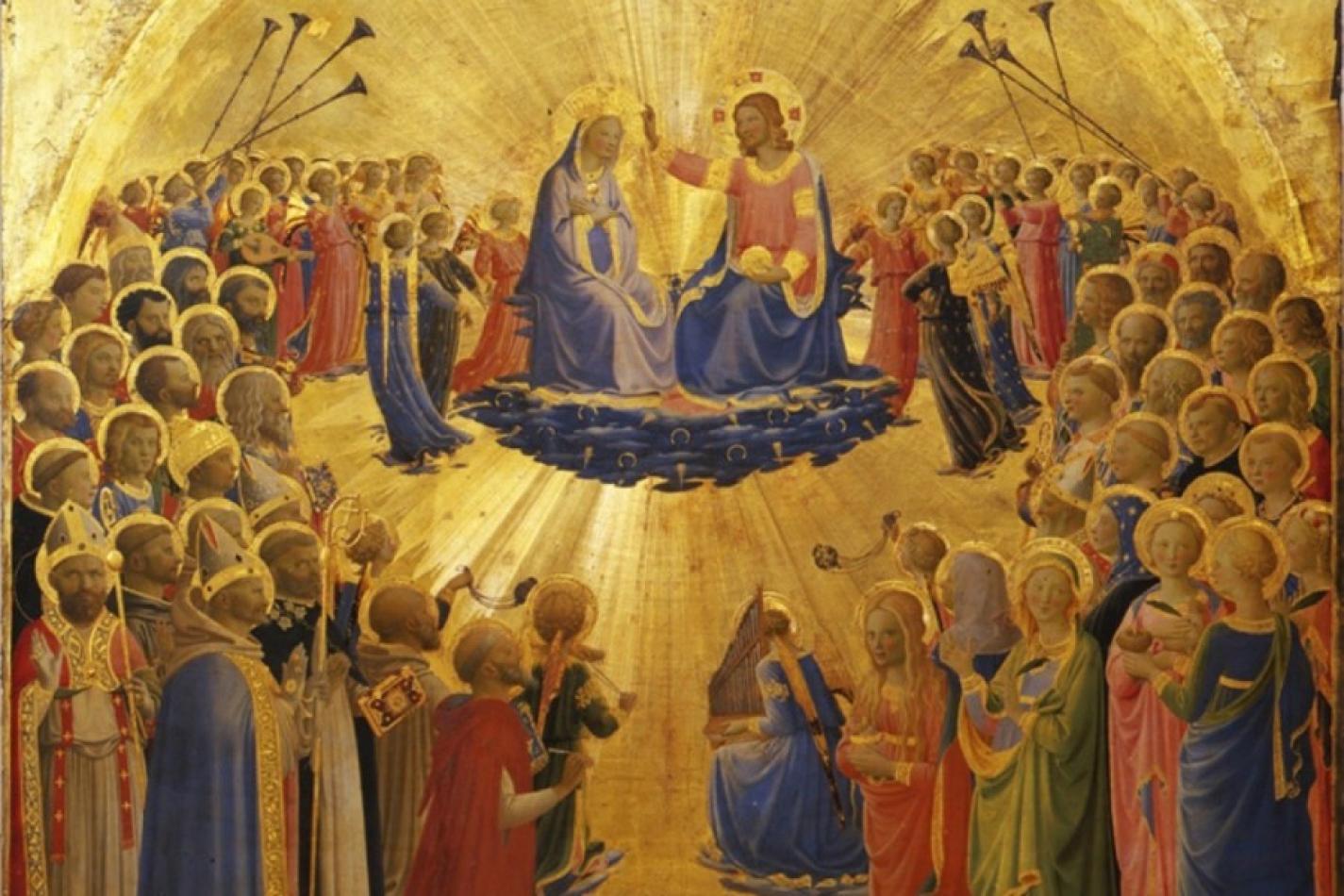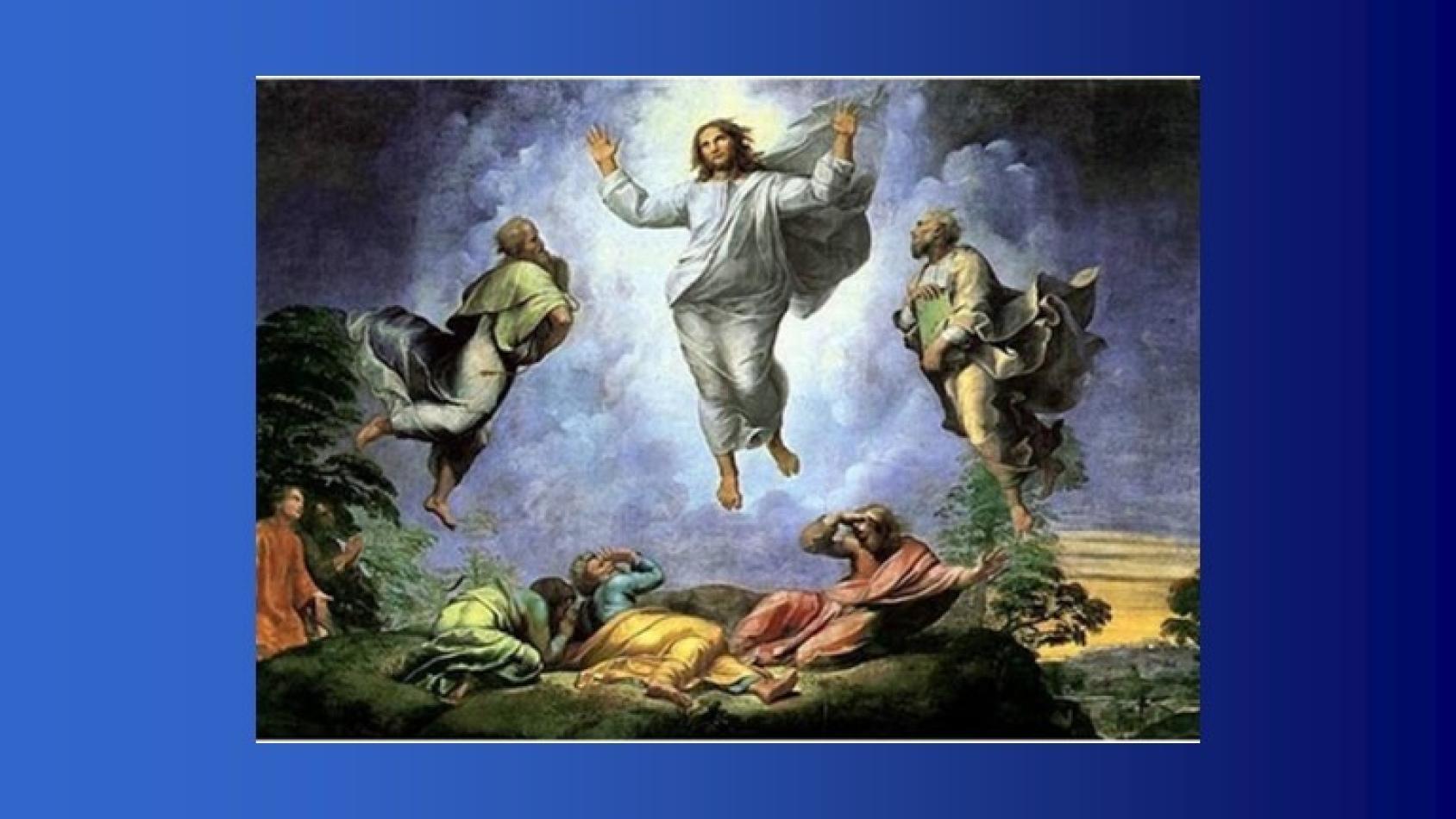Daniel Comboni
Comboni Missionaries
Institutional area
Other links
Newsletter
Who are the saints we celebrate today? They are not (only) those officially recognised by the Church, who have worked miracles, but the great multitude seen by St John in the Book of Revelation: “a great multitude which no one could count, from every nation, tribe, people and language” (Rev 7). Many of them have lived alongside us and cared for us; others we have encountered during our lives. And many, even unknown to us, have been like angels in our midst.
“Jesus went up the mountain; he sat down, and his disciples came to him.”
Matthew 5:1–12
On 1 November, the Church celebrates the Solemnity of All Saints, a feast of very ancient origin. Already by the end of the second century, we find evidence of genuine veneration of the saints. The solemnity originated in the East in the fourth century and gradually spread to other regions, though with different dates: in Rome it was celebrated on 13 May, while in England and Ireland, beginning in the eighth century, it was held on 1 November. This latter date was later adopted in Rome from the ninth century onwards.
Who are the saints we celebrate today? They are not (only) those officially recognised by the Church, who have worked miracles, but the great multitude seen by St John in the Book of Revelation: “a great multitude which no one could count, from every nation, tribe, people and language” (Rev 7). Many of them have lived alongside us and cared for us; others we have encountered during our lives. And many, even unknown to us, have been like angels in our midst.
The Beatitudes: Eight Words, Eight Paths, Eight Gates
The liturgy presents us with the Gospel of the Beatitudes according to Matthew (Mt 5:1–12). They form the prologue to Jesus’ first discourse in Matthew and the summary of the entire Gospel. It is a well-known text, but precisely for that reason we risk skimming over it and missing its richness, depth, and complexity. Gandhi once said that these were “the highest words of human thought”, the quintessence of Christianity.
It should be noted that the evangelist Matthew has a fondness for mountains. In his Gospel, the word “mountain” appears fourteen times. Seven particular mountains mark the public life of Jesus, from the temptations (cf. Mt 4:8) to the apostolic mandate on the mountain of Mission (cf. Mt 28:16). These mountains carry symbolic and theological meaning: the mountain signifies closeness to God. In fact, Luke places this discourse of Jesus on a plain. The Christian life unfolds in a twofold movement: the ascent to the mountain and the descent to the plain.
“Seeing the crowds, Jesus went up the mountain; he sat down, and his disciples came to him.” This “going up the mountain” and “sitting down” (a solemn act, as of a teacher taking his seat) clearly recalls Moses on Mount Sinai. This mountain is therefore the new Sinai, from which the new Moses proclaims the new Law. Whereas the Law of Moses, with its prohibitions, set the limits not to be crossed in order to remain within God’s Covenant, the new “Law” opens up new horizons. It is a new plan for life.
Jesus’ discourse begins with the eight Beatitudes (the ninth, addressed to the disciples, is an expansion of the eighth). To the ten “words” of the Decalogue now correspond the eight “words” of the Beatitudes. They are the new paths of the Kingdom and the eight gates of Paradise!
What the Beatitudes ARE NOT
-
The Beatitudes are NOT a praise of poverty, suffering, endurance, or passivity… Quite the opposite: they are a revolutionary discourse! That is why they provoke the violent opposition of those who feel threatened in their power, wealth, or social standing.
-
The Beatitudes are NOT an opiate for the poor, the suffering, the oppressed, or the weak… for they would lull to sleep the conscience of injustice of which they are victims, leading them to resignation. Even though, at times in the past, they have been used in this way. On the contrary, they are an adrenaline that energises the Christian to engage in the struggle to eliminate the causes and roots of injustice!
-
The Beatitudes are NOT a postponement of happiness—which lies at the heart of every person—to the future life, in the hereafter. They are already a source of happiness in this life. Indeed, the first and the eighth, which frame the other six, use the verb in the present tense: “for theirs is the Kingdom of Heaven.” The other six use the future tense, but it is a promise that already makes happiness present today, even while moving towards its fulfilment. A promise that guarantees that evil and injustice do not have the final word. The world does not, and will not, belong to the rich and the powerful!
-
The Beatitudes are NOT (only) personal. It is the Christian community, the Church, that must be poor, merciful, mourning with those who mourn, hungry and thirsty for justice… in order to bear witness to the Gospel!
What the Beatitudes ARE
-
The Beatitudes ARE a cry, a proclamation of happiness, a Gospel addressed to all. “Blessed” (makarios in Greek) can also be translated as “happy”, “congratulations!”, “well done!”, “how fortunate you are!”. The Beatitudes apply to all situations and at every level. But we must realise that this message we profess and proclaim stands in complete contradiction to the mindset of the world in which we live. So we should not be surprised if many draw back from it.
-
The Beatitudes ARE… one single reality! The eight are variations of one and the same truth, and each sheds light on the others. Commentators generally consider the first to be fundamental: “Blessed are the poor in spirit, for theirs is the Kingdom of Heaven.” All the others are, in some way, different forms of poverty. Whenever, in the Bible, the Covenant is renewed, it always begins by re-establishing the rights of the poor and the excluded. Without this, the Covenant cannot be renewed! One might wonder why there is no Beatitude about love. In reality, all of them are concrete expressions of love!
-
The Beatitudes ARE the mirror, the self-portrait of Christ. To understand them and grasp their nuances, we must look to Jesus and see how each one was fulfilled in his person.
-
The Beatitudes ARE the key to entry into the Kingdom of God—for everyone: Christians and non-Christians, believers and non-believers. In this sense, the Beatitudes are not “Christian” in an exclusive way. They define who can truly enter the Kingdom. All are called to the Beatitudes! This is also what Matthew 25 tells us about the final judgement.
Conclusion
The Beatitudes are not the expression of a dream of an ideal, unattainable world—a utopia for dreamers. For the Christian, they are the criterion of life: either we accept them, or we shall not enter the Kingdom!
The Beatitudes correspond to eight categories of people and to eight gates of entry into the Kingdom. There are no other entrances! To enter Paradise, one must identify with at least one of these eight attitudes and embody an aspect of the life of Christ.
Which Beatitude is mine—the one to which I feel particularly drawn? The one I sense to be my vocation, by nature and by grace?
Fr. Manuel João Pereira Correia, mccj




